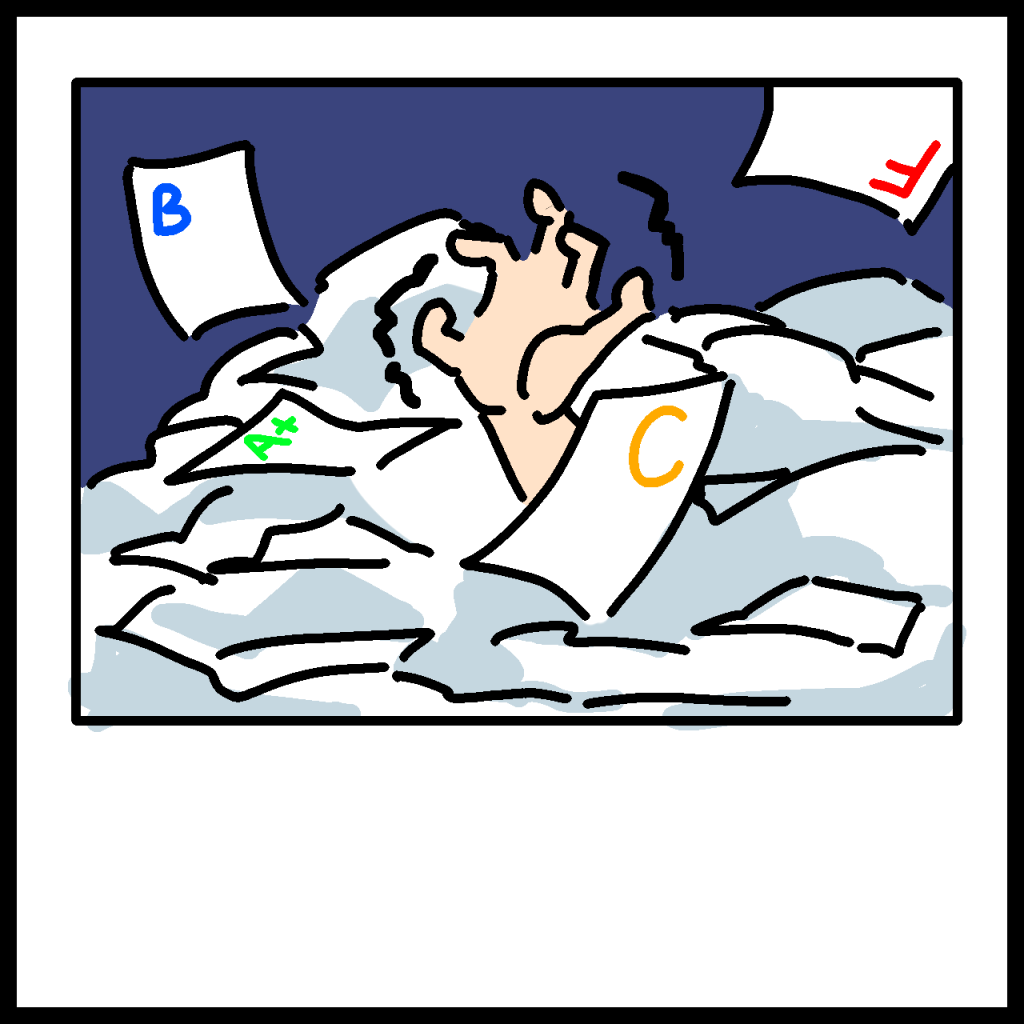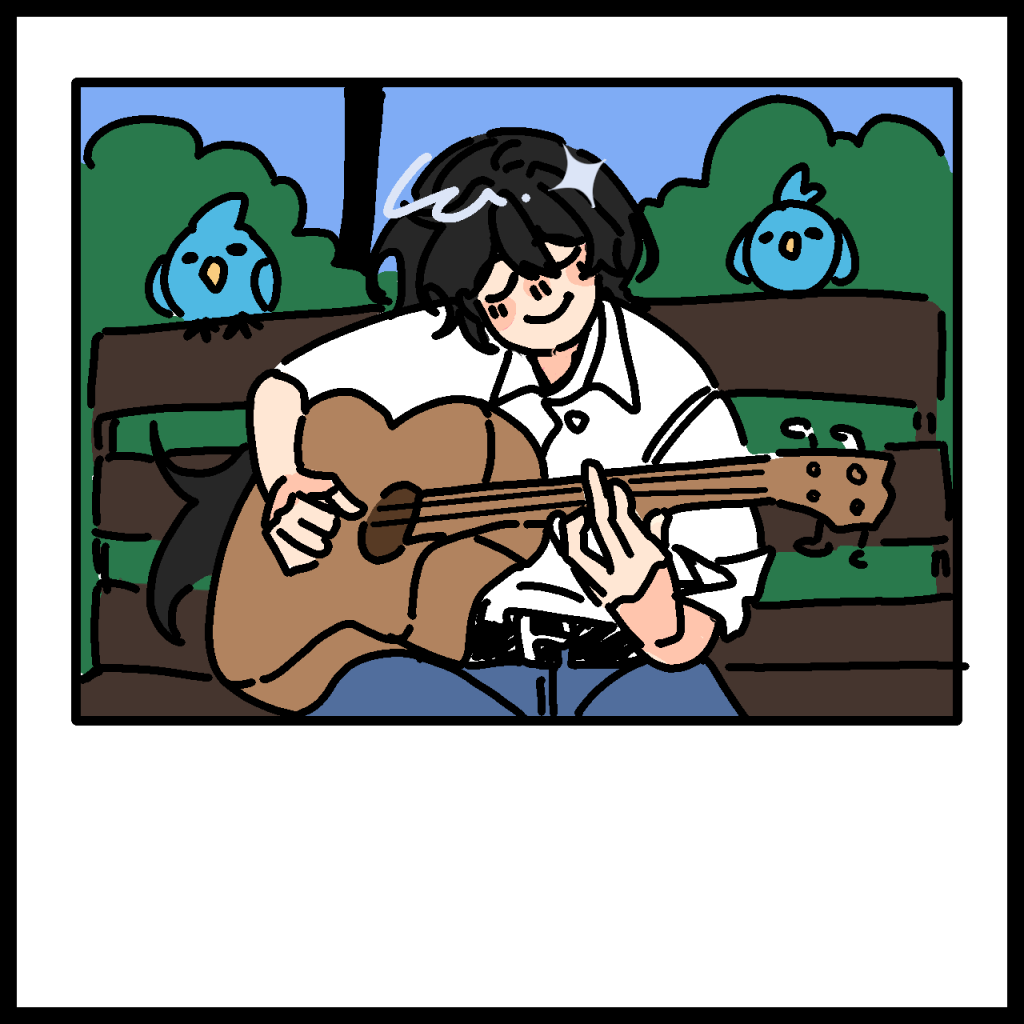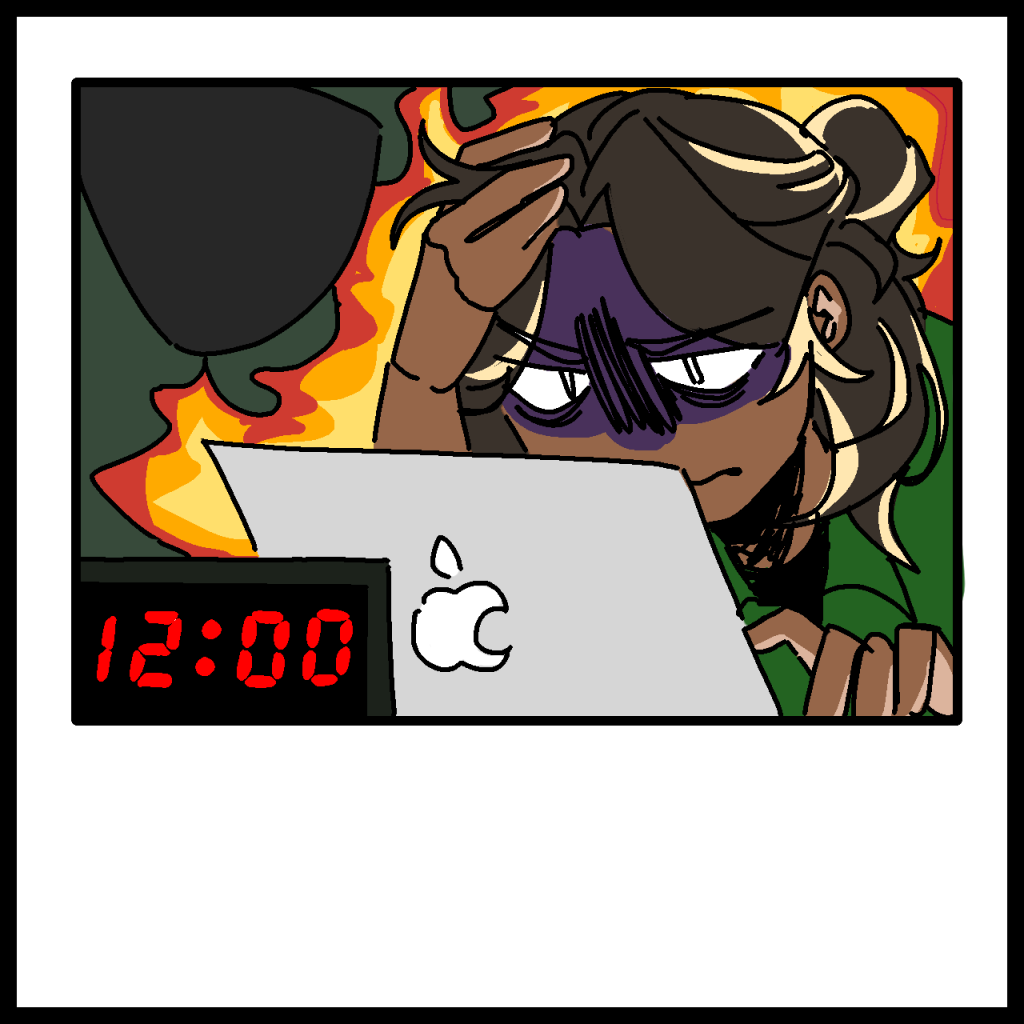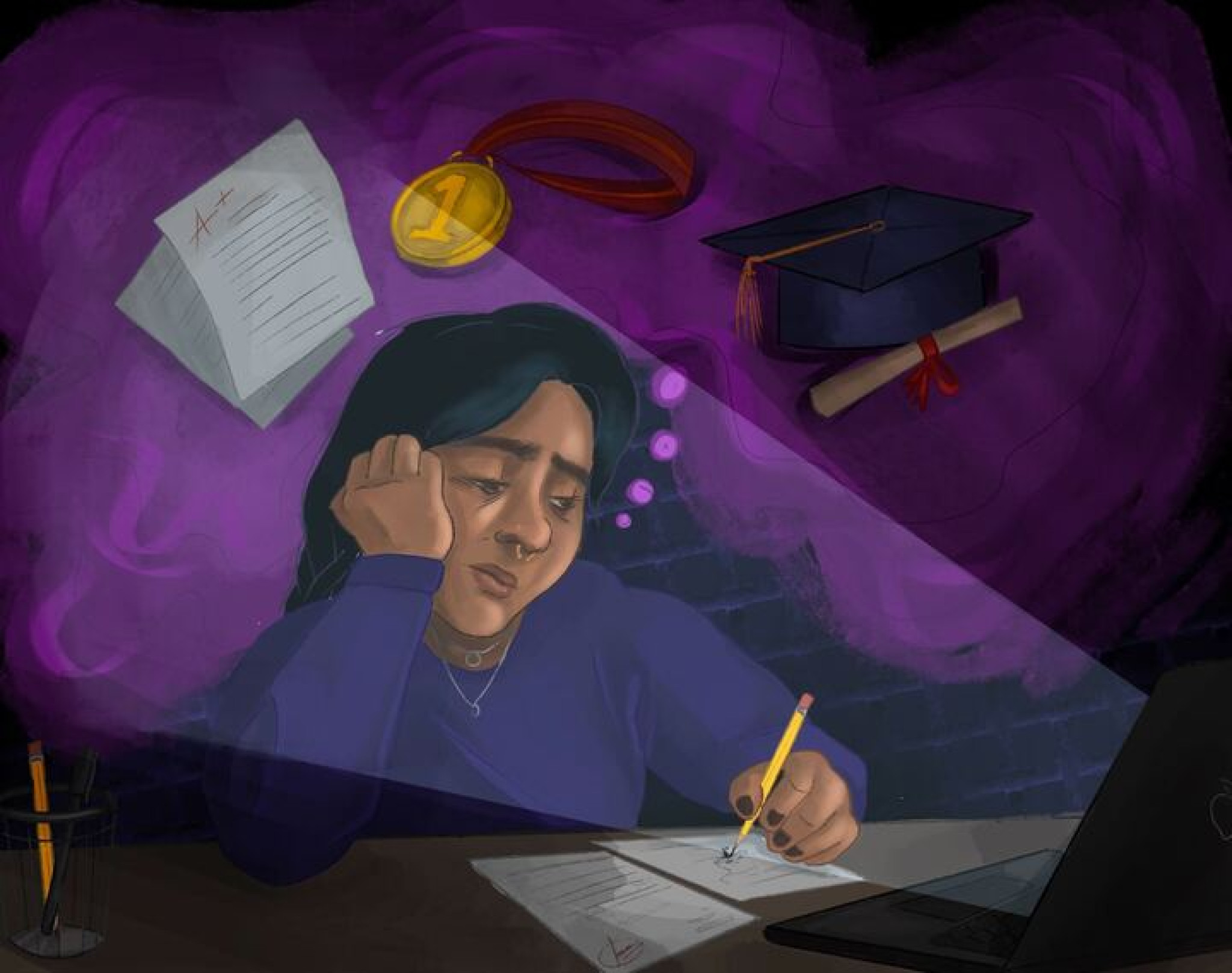Senioritis
Many high school students face pressure to perform academically in preparation for their future. A 2017 American Psychological Association (APA) survey on stress cited academics and getting into college as the most common sources of stress for high school students. 83 percent identified school as a major stressor, and 69 percent identified college admissions and deciding what to do after high school as a cause of stress.
The term “senioritis” is common among seniors it explains a decline in motivation that many students experience in their final year of high school. “You’re so close to being done with the semester, but then there’s so much stuff you have to do … I feel like I don’t ever want to do anything,” Allison Toan, a Berkeley High School senior, said.
Towards the end of the semester and school year, many students find themselves feeling burnt out. Shannon Mueller, an AP, International Baccalaureate, and regular Biology teacher at BHS, has noticed that as the year goes on, student burnout usually increases. “I definitely hear students saying that they’re stressed out because of their workload, and it’s a combination of that, I think, and expectations from outside sources to get into a good college”, Mueller said. Mueller also thinks that a lot of student burnout could be self imposed, with students trying to challenge themselves or overloading their schedule.

Academic Rigor
Junior and senior years are known to be the hardest for most students. Toan and Samuel Sutton are both seniors at BHS, and they agreed that their junior and senior year workload was much larger than their freshman and sophomore year. Eleventh grade is typically when more high-rigor classes become available to most students, and schedules become more customizable for different workloads. Mueller has noticed that many of her AP and IB biology students also choose other classes with similar difficulties and workloads and sometimes over-schedule themselves with other activities.

College Competition
The first semester of senior year is when many students start applying to colleges. The application process is known to be a stressful time for students; this has only gotten worse over the years. Shannon Mueller, a BHS biology teacher, and Nancy Hsieh, a Berkeley International High School and Hive five counselor, saw a definite increase in competitiveness surrounding colleges over time.
This may be due to the growing number of applications per year. In 2024, there were 904,860 first-year applicants as of Friday, Nov. 1, 2024 which showed a six percent year-over-year increase. These applicants submitted 4,017,250 total applications, a 10 percent increase compared to the same time in 2023.
"You can do everything right, and you can be an amazing applicant, but you still might not get into the school you want," Allison Toan, BHS senior said. She thinks that the culture around college admissions can make it feel as though students aren’t doing enough, even if there isn’t more that they can do. “It’s kind of an awful feeling," Toan said.
Extreme Workloads
However, even after most applications are over, the burnout doesn’t necessarily end. According to Hsieh and Samuel Sutton, BHS senior, some seniors in their second semester find themselves lacking motivation for school once their after high school plans are solidified.
“After four years of high school, a lot of high school students are just ready to get out of here," Sutton said. He understands senior burnout after college decisions and doesn’t see it as a huge issue, but Sutton advised juniors who are feeling burnt out to “lock in."
Remy Williams, a BHS junior, explained she doesn’t feel very impacted by burnout and she tries her best to minimize procrastination so that she isn’t overwhelmed by her workload. Williams does notice the stress of junior year in many of her peers.
“Sometimes some of my (junior) teammates leave practice early to go do their homework, if they have a lot,” she said. While Williams' academic workload doesn’t seem to affect her very much, she mentioned how her extracurriculars sometimes make her school life harder. “I have to go to soccer practice every day of the week ... so I don't have a lot of time to work on my homework,” she said.
BHS has many resources available for students struggling with academics, mental health, or anything else. Counselors at BHS, such as Hsieh, work with students to “come up with what are some stress reductions and different things that they can do (when feeling burnt out),” Hsieh said.

Impact on Students
Hsieh noticed that many of the students she counsels come into her office and describe being overwhelmed or burnt out, but will rarely use labels like “burnt out” or “overwhelmed.” She explained that many students struggle with a lack of sleep and difficulty waking up, which is a more chronic issue than stress associated with cramming for tests and finals.
Another symptom of burnout Hsieh has noticed is attendance. “(Students) might still be coming, but they're still feeling like they don't want to be here. And then a lot of it too, we do see kids literally not coming to school,” she said.
Burnout manifests itself in different ways between juniors and seniors. Many seniors find themselves lacking motivation during their last days in high school, after the stress and build-up of college applications is over, and many juniors are feeling the effects of larger workloads.
Avoiding Burnout
To help combat burnout, Toan encouraged students to take breaks. “I usually do most of my schoolwork and stuff in my room. So I like to get out of my room (when I feel overwhelmed),” she said. Sutton exercises or listens to music to relieve stress.
Mueller advised that students develop good organizational skills, as she believes that many students don’t know how to manage their time very well which can commonly lead to burnout. She added that students should prioritize enjoying their time in high school and pursuing anything they're passionate about, rather than falling into the habit of decisions being based on what might appeal to colleges.
There's value in “naming what you're feeling or going through or experiencing,” Hsieh said. She hopes the growing dialogue surrounding issues such as burnout will help students feel more willing to ask for support when needed. While conversations about students' mental health have become more normalized, it’s important to continue educating and de-stigmatizing issues such as burnout so that students feel supported and comfortable in using the resources available to them.





